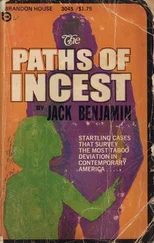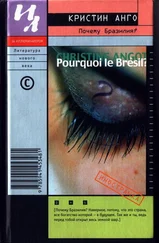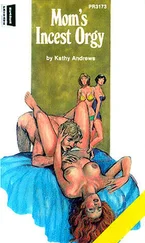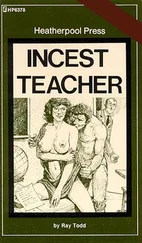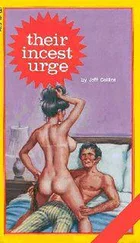The day of the 27th
I clean the house. In the evening I may see Marie-Christine, we still haven’t decided. I’m also invited to Claude’s with Judith. I have a five o’clock appointment with Toro, my chiropractor, he’s Colombian. He helps me. Finally relaxed, I get home at six thirty. I’m doing well. Maybe I’ll even draw myself a bath. I call Marie-Christine in this tranquil state. I don’t want to see her, I’d rather rest, eat a few raviolis, watch the movie about Thomas Bernhard I’d recorded, and go to bed early without discussing everything again. We talk calmly, a call comes in, it’s Nadine.
I summarize what’s on my little piece of graph paper, which I’d kept. Her answer:
—We’re a family. It’s a family of octogenarians, of ghosts, of this family, of ghosts, of shades, you see, Marie-Christine and I are the only ones that have a bit of life left in them.
—…
—They’re like ghosts. When you have kids, you want Christmas to be joyful, Marie-Christine is the only one who brings the slightest bit of joy to this holiday. If I didn’t have children, I wouldn’t care at all about Christmas, and I wouldn’t do anything, I’d go to the movies, I’d do whatever. (So the movies are whatever…)
—I have a child and I’ll be alone with her.
—Like everything that reminds you of childhood, Christmas is important for everyone, obviously. (In that brisk tone that made her famous, the slightly haughty woman who is suffering.)
Ancient, a ritual, ghosts, a family of octogenarians, and that I was perverse to express my suffering the way I did, that she understood very well, very well indeed, perfectly, everything I was saying about legitimacy and illegitimacy, but it’s not her responsibility. Besides, it’s a very male thing to do, to meet someone and say “everything you’ve done before me, everything that existed before I came on the scene doesn’t exist anymore, men do that.” But she’ll telephone Marie-Christine and will give her clearance. Because, anyway, she has lost interest. She doesn’t want to be responsible for our break-up. It’s really not worth it. She had put pressure on Marie-Christine over the phone the other day, she’ll give her clearance.
I didn’t say: I know you broke out in tears.
—Give her clearance? But you don’t have to give her clearance.
—Yes, I do, I’ll give her clearance. I don’t like it when people do things out of obligation, on the phone I put pressure on her. I want to take that pressure off her and for her to spend Christmas with you. Because, in any case, under these circumstances, I don’t like it.
Another phone call to Marie-Christine, this time I got told off. Later she told me she had bought and chilled a bottle of champagne, she also bought filets of fish because I love them. She should have told me instead of insulting me and hanging up on me. I tell her “I’m leaving,” I’d decided to go to Claude’s.
—Right, you do that, go see Claude and your old analyst’s daughter. Go have a nice time with others who are more interesting than I am. You’re exhausted, but go ahead, go out. This time you’ll be with people who suit you.
—You’re right, I’m going to have dinner with my husband and my old analyst’s daughter.
We hang up on each other. At Claude’s, Léonore is asleep, I stroke her hair. Judith and Nicolas are seated with a bowl of salted things between them. We go to the table. What Claude has cooked is not good, the store-bought gnocchi are hard, fortunately there’s a salad and bread, the ham isn’t good either. I don’t at all like the way he talks about the sauce he made. The conversation, anecdotes and more anecdotes, that’s it. I leave early. A little bit of cheese, I don’t wait for the ice cream. To be polite, I tell them about my insomnia, the reason I have to leave, ten hours over three nights. Two messages from Marie-Christine are waiting for me “you are a real shit, a real shit. You left, I can’t believe it, you are a real shit, a real shit.” The line is busy, then it rings. She was on with Nadine. What is it some women have against their relationship, why do they find it objectionable? It got poisonous. I was still screaming at two in the morning. Even though I was calm before, I’m now in my bed, deformed and disfigured with pain. She’ll end up unplugging her phone. After a particular thing I said.
She hangs up. It’s Friday night. I call her back a good dozen times, I leave pleading messages. “Please pick up, I’m begging you, please,” I’m garbage, I’m a masochist, I have no dignity, I treat myself like shit, I plead with her. She picks up, she tells me again that this is her last sentence, that there’s no point calling back, because Nadine is objectionable, that I’m not the first to say, it’s part of her, it is her.
—You wouldn’t defend me the way you defend her.
And so on until the end, I don’t know any more. I must have fallen asleep. I woke up around six o’clock Saturday morning, the 28th, on Monday I was to see Moufid Zériahen, I was going to ask if I could be admitted to L’Alironde for a while. I wrote, things got a bit better. There are rooms for writing in the hospitals and psychiatric clinics, but things shouldn’t be mixed up.
There would be other signs, other symptoms and other physical manifestations, I only mentioned the most recent, the ones right after the trigger. If I went back in time, I could write pages and pages. A sense of suffocation, vomiting, nausea, bouts of colitis, insomnia, breakdowns, suicidal urges, spectacular ones, I picture myself again one evening in Spain, in Rosas, lying on the sidewalk, I was eighteen years old, I was on vacation with Pierre, a summer evening, I was stretched out on the sidewalk because my stomach hurt so much, people passed by, it was vacation time. Vertigo, fits of hysteria, I remember a Place d’Erlon in Reims, on the corner of Rue Burette, near the Espace store, I’d thrown my eyeglasses on the ground, I’d broken them (like I did when Chirac was elected), Place d’Erlon, I remember the reason: I didn’t know what to buy for dinner, slapping my own face, in public but mostly alone, and my speech, a way of talking that constantly associated disparate things. François told me “you should put yourself to the side a bit.” A way of unintentionally attacking with language, obstructed breathing, in the end you’re alone. You feel contempt for people who help you, you feel contempt for people who don’t. When I got married, I had insomnia for eight whole days and lots and lots and lots of violence, perverse language, this chapter could have been long and detailed, I’ve forgotten some, and I have to be precise, clear, accurate, and orderly. I don’t want to end up with something more or less impressionistic, what they call: artistically vague.
Definitions
These are taken from Elisabeth Roudinesco and Michel Plon’s Dictionary of Psychoanalysis , published by Fayard. We’re now on Wednesday, December 2nd. I’ll get back to Sunday the 29th, Monday the 30th, and Tuesday the 1st. I was affected by certain definitions. I made an initial diagnosis, empirically, I’m not a doctor. I took some words, I understood what kind of insanity I have, what form. I figure it out, and it’s not pretty: it’s terrible. As they say: the rules of the game. The rules of the game as they say, I’m somewhat mad as they say, I’ve got my feet on the ground as they say. It’s a kind of excuse, this “as they say,” a kind of regret, and of innocence. I’ve underlined certain words to make reading easier. At the same time, it’s for emphasis. And finally, it builds something. Earlier my motto could have been ‘Everything can always be mashed together.’ I couldn’t take it anymore, as they say: enough was enough.
Читать дальше

